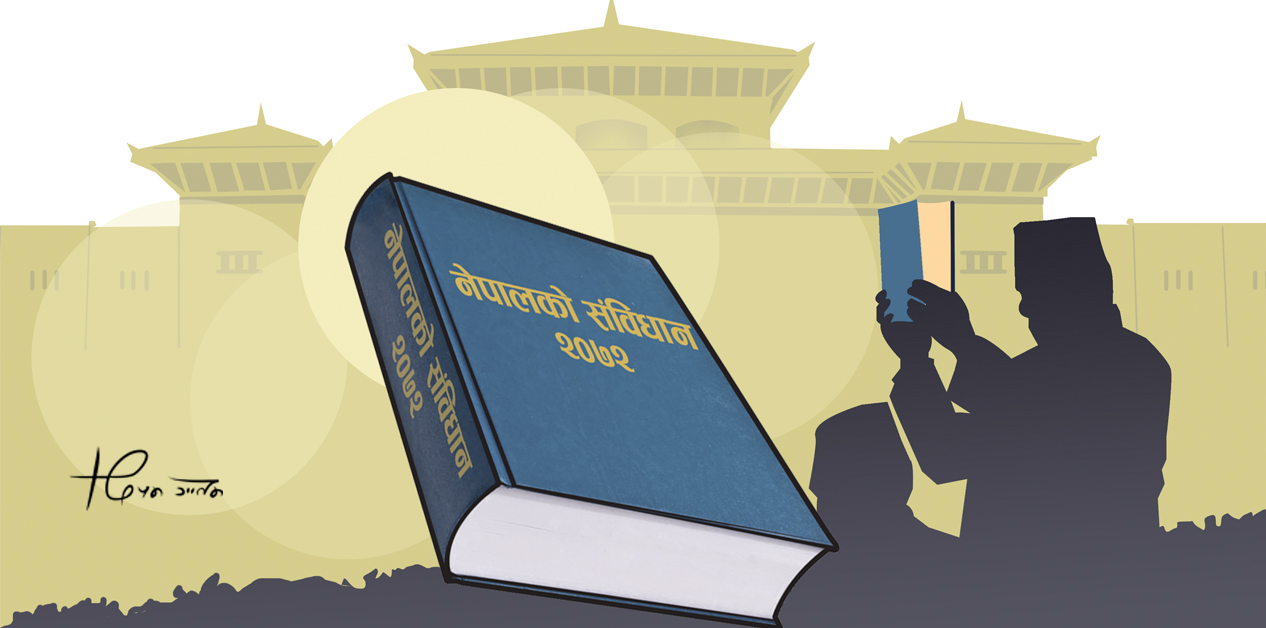
There are structural problems in state governance, solvable only through proper reforms and effective management.

KATHMANDU: Today is Constitution Day. Exactly ten years ago, on this day in 2015, after numerous internal and external struggles and hardships, the country received a new constitution from the Constituent Assembly.
The Gen Z uprising, which erupted against corruption and restrictions on social media, has brought the country into a new chapter of politics. In fact, it was the power-hungry character of the old generation, their stubborn mentality, misgovernance, and the evils of nepotism and favoritism that forced the new generation to intervene.
Without addressing the aspirations and desires of this rebellious young generation, the country’s future political and social journey cannot achieve sustainable peace and broad prosperity.
For that, the country must not be past-oriented but future-oriented, delving into history to build corruption-free political stability, an inclusive and more democratic society. And, coincidentally, our constitution itself has provided the facility to review it every ten years.
The present interim civilian government has no excuse to retreat from the mandate of adhering to and safeguarding the constitution, holding general elections within six months (on March 5, 2026), and transferring power to an elected government.
Another main responsibility of this government is to entrust the elected government and parliament after the elections with the burden of constitutional amendment. At the same time, within this period, the government must also meet the public expectation of investigating the killings and destruction that occurred during the movements of 23rd and 24th Bhadra, and of forming a high-level judicial commission against corruption to begin work.
There is no constitutional or legal hindrance to this. Another important thing is that this government can and must show change in governance practices and style, or set a good example for future power-holders. Beyond these tasks, let us not hold, nor distribute, excessive expectations from the interim government.
Supporting the government in these tasks, the political parties also have an unprecedented opportunity to regain the credibility they lost through honest generational transition. They have neither any place nor any excuse to escape from this.
The bureaucratic mechanism, which was a partner in yesterday’s distortions, must also understand this as the last chance to improve. If the government, bureaucracy, political parties, and civil society shoulder these responsibilities, the momentum of change can indeed be addressed.
Yes, there are structural problems in state governance. And their resolution is only possible through appropriate reforms and effective management capacity.
But blaming only the constitution to cover up one’s behavior, style, and all shortcomings, and indulging in immature monologues like nullification, does not provide solutions—it rather pushes the country into the deep pit of confusion and uncertainty.
If the problems are constitutional provisions, then they can be addressed through amendments. Debate on this must be initiated immediately; it should not be delayed.
In essence, the country must be able to change according to the aspirations of the new generation and instill in the people the confidence that everyone is ready to change themselves. If this can be done, the constitution will get justice.
Best wishes on Constitution Day!